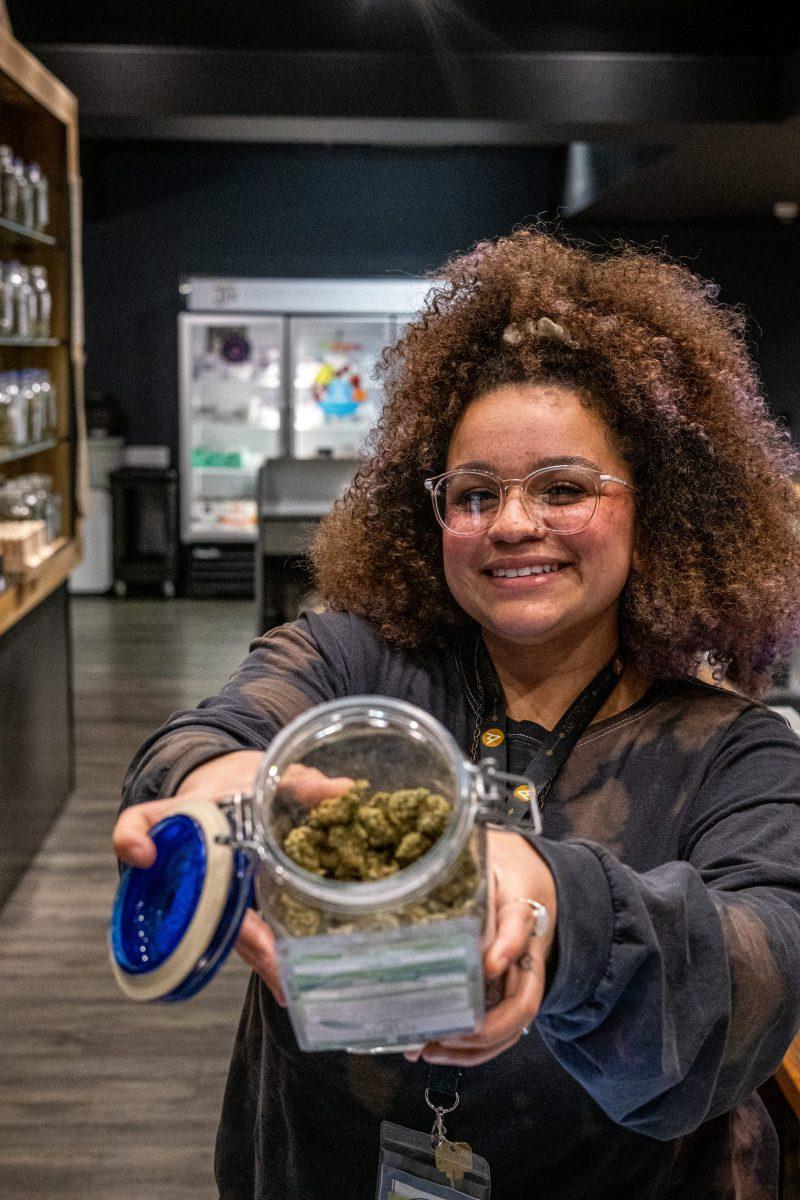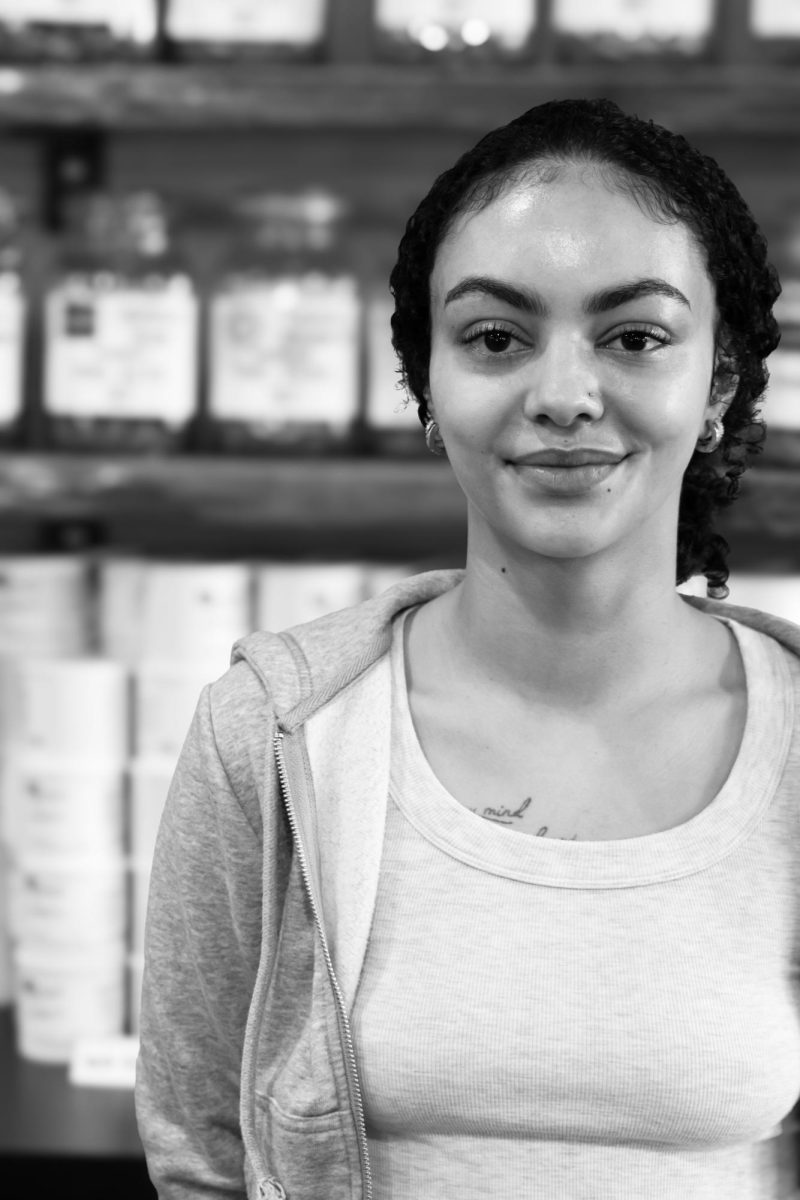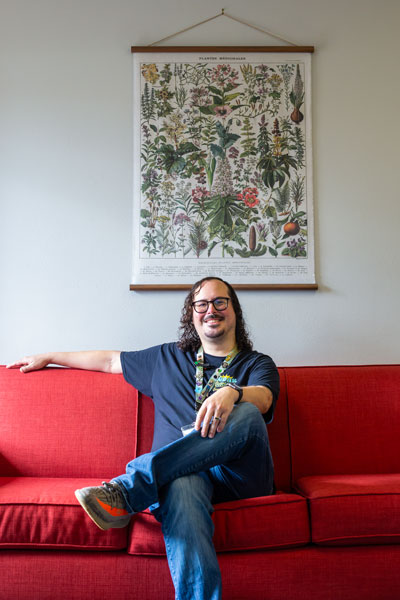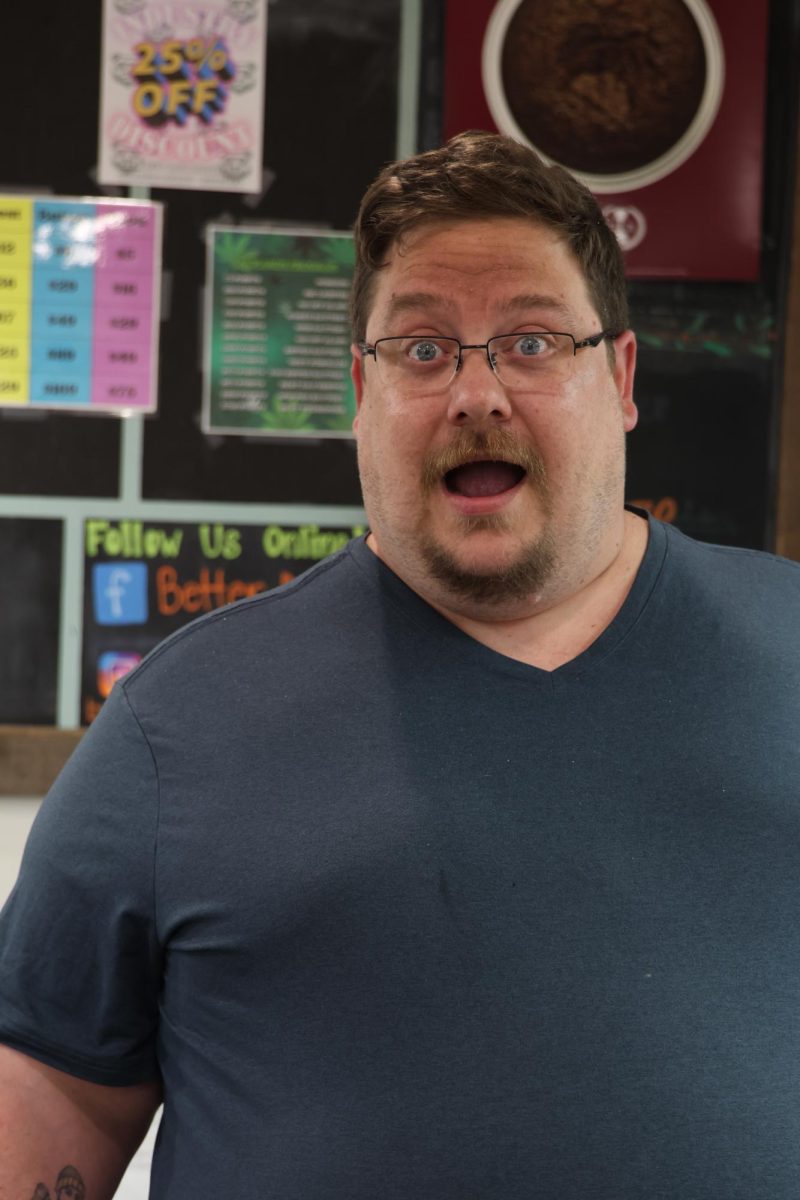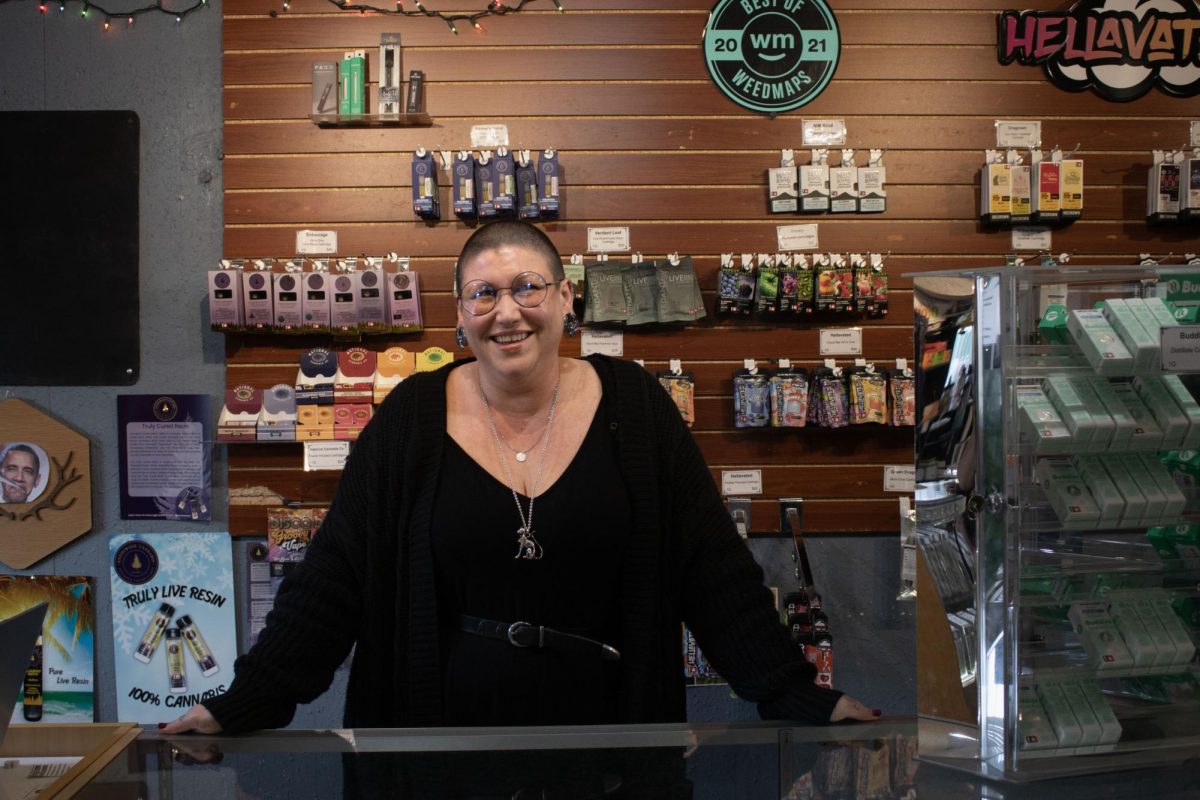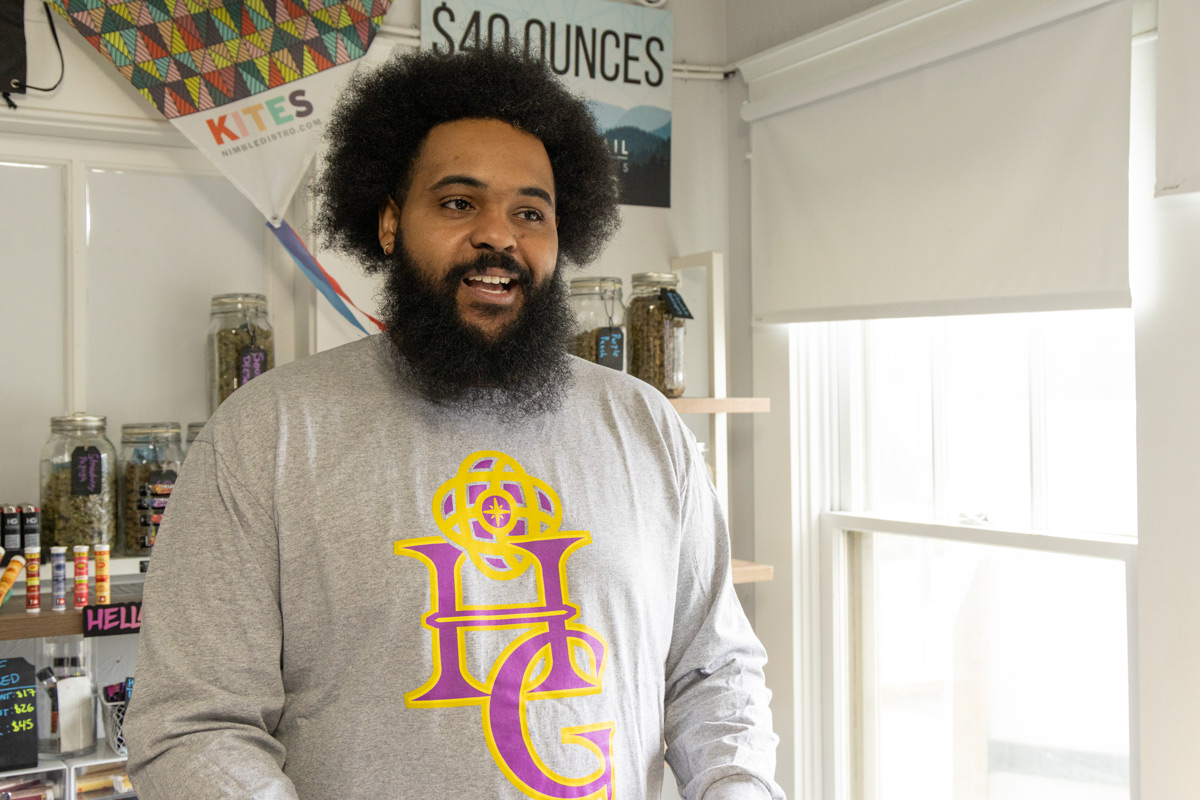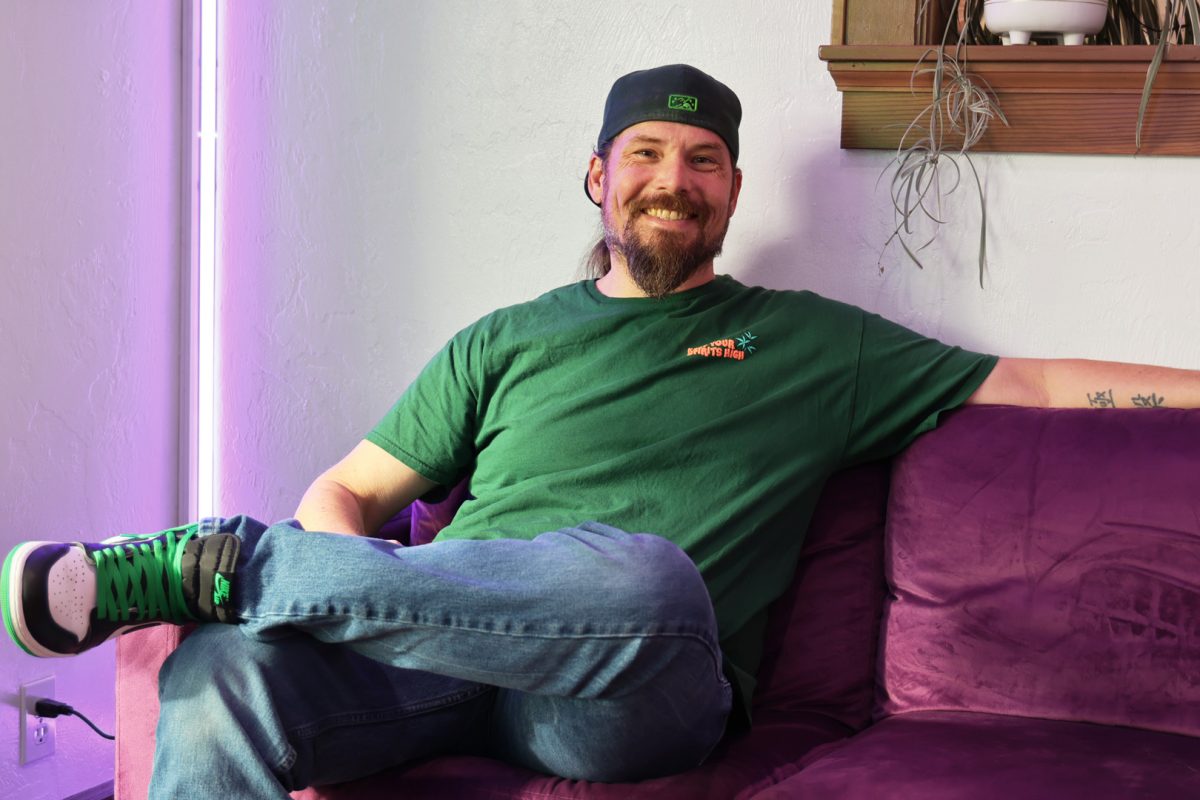Hai-lea Eads got a job budtending after moving to Oregon from Colorado in 2021. After spending some time working at Whole Foods, she felt called to put her customer service skills to the test in the cannabis industry. Now, two years into her own Oregon Trail adventure, she can be found behind the counter at TJ’s, where she’s eager to help customers connect with the right products for them.
What drew you into budtending?
I love customer service, and I love face-to-face interactions. I make the joke that human interaction is my drug of choice because I just love talking to people and getting different perspectives. That paired with my love of cannabis, my own recreational use and using it to self-medicate in different ways, I just knew it was somewhere that I wanted to be. It didn’t become a reality for me until I moved to Oregon almost two years ago. I feel like getting your foot into the cannabis industry is more accessible out here than it is in Colorado.
How do you work to make cannabis more accessible and less intimidating?
I never want to assume what someone is looking for or push them in the wrong direction. I love to start with ‘what are you looking for?’ and if that sparks something else that might work better or work alongside, then we can go from there. As far as accessibility goes, I oftentimes ask ‘what’s your budget?’ I try to make it very non-threatening in as many ways as possible. I’ll give them the spectrum and let them pick where they want to fall.
Is there anything about the way people approach you, as a budtender, or the industry that could be done better?
People come in with kind of this attitude like recreational use is still Top Secret but in kind of a joking manner. I’ve had experiences with people poking fun at the industry, as if it shouldn’t be taken seriously, and it’s all this big facade… It’s really hard to have educational conversations when people come in and treat it without respect like they just turned 18 and they’re in a sex shop. It’s like, guys, it’s 2023, and your grandma smokes pot – get over yourselves.
Thinking about this edition’s theme, I rarely see brands partnering with the Last Prisoner Project anymore – it’s very scarce, and that’s one of the few organizations I can think of off the top of my head that is actively trying to do something to make a positive difference involved with the cannabis industry. I don’t see a lot of advocacy for things like that – for people who are or were incarcerated.
Or I think about all the biomaterial that we’re wasting every year – all these millions of pounds of cannabis that we’re harvesting across the U.S. that we aren’t allowed to use certain parts of it because, technically, the stalk that the flower grows on is still considered usable cannabis. So it has to be trashed. I do see things like making packaging out of recycled materials happening, but why aren’t more people talking about repurposing these materials? It’s super awesome that the industry is always evolving, but it’s also like, why are we not focusing more on the things that really matter? There is a lot of waste in the cannabis industry and a lot of ways that we could do better when it comes to us being more eco-friendly and conscious.
Are there ways we can be more conscious of the history of cannabis-related incarceration as participants in the industry? How can folks get involved in being informed and vocal about this?
It’s actually really easy because Last Prisoner Project is a nonprofit, so if you reach out to them, they’ll give you the resources that you want. They have a budtender program that I signed up to be a part of so they send me monthly newsletters about what’s going on. That way, I can educate my customers and I can educate my co-workers and get the conversation flowing. It’s as simple as requesting a donation box to put in your lobby or near your register. Even if no one wants to donate, we can get people talking and make them a part of the conversation and have them understand that there are still a lot of people who aren’t benefiting from the cannabis industry – people who are actually getting hurt by it because they’re sitting in cells while all these people are profiting off of it.
It is really unfair and there are foundations and advocacy programs that want to help and are talking about it, they just need more people to be involved and care. They’re not asking for anything – it’s just as simple as caring enough to get involved, reach out and be part of the conversation at the end of the day.
Anything else you want to share?
I love budtending; I think it’s so fun. I’m excited to see how it changes over the years and maybe how my roles will differ. Also, just to tell people not to be scared. For the most part, budtenders are just people. They want to help, and if customers have the right approach, it makes it so much easier for us to be able to get you what you need. So be nice to your budtenders and treat the industry and the people in it with the respect they deserve.

